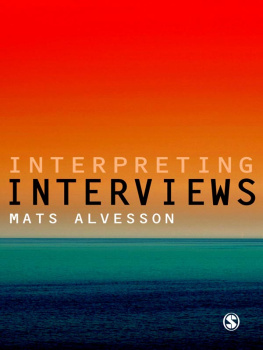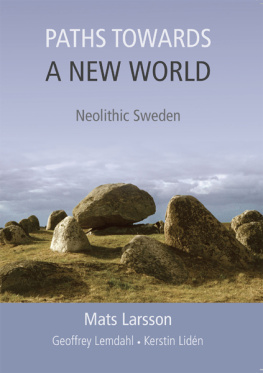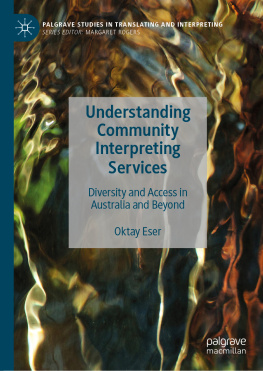Interpreting Interviews
SAGE has been part of the global academic community since 1965, supporting high quality research and learning that transforms society and our understanding of individuals, groups, and cultures. SAGE is the independent, innovative, natural home for authors, editors and societies who share our commitment and passion for the social sciences.
Find out more at: www.sagepublications.com
Interpreting interviews
Mats Alvesson
Mats Alvesson 2011
First published 2011
Apart from any fair dealing for the purposes of research or private study, or criticism or review, as permitted under the Copyright, Designs and Patents Act, 1988, this publication may be reproduced, stored or transmitted in any form, or by any means, only with the prior permission in writing of the publishers, or in the case of reprographic reproduction, in accordance with the terms of licences issued by the Copyright Licensing Agency. Enquiries concerning reproduction outside those terms should be sent to the publishers.
SAGE Publications Ltd
1 Olivers Yard
55 City Road
London EC1Y 1SP
SAGE Publications Inc.
2455 Teller Road
Thousand Oaks, California 91320
SAGE Publications India Pvt Ltd
B 1/I 1 Mohan Cooperative Industrial Area
Mathura Road
New Delhi 110 044
SAGE Publications Asia-Pacific Pte Ltd
33 Pekin Street #02-01
Far East Square
Singapore 048763
Library of Congress Control Number: 2010931399
British Library Cataloguing in Publication data
A catalogue record for this book is available from the British Library
ISBN 978-0-85702-257-8
ISBN 978-0-85702-258-5 (pbk)
Typeset by C&M Digitals (P) Ltd, Chennai, India
Printed in India at Replika Press Pvt Ltd
Printed on paper from sustainable resources.
CONTENTS
PREFACE
In contemporary Western society, interviews are routinely carried out as a way of gaining knowledge about all kinds of phenomena. This society can with some justice be referred to as an interview society. It is easy to accept the interview as a good and economical way to learn about things, but then it is also easy to underestimate the problem of relying on responses to questions as valid sources of information. Much has been written on methods, but much still remains to be said. In particular there is a bias towards technical and practical issues, while the more intellectual side of interviews tends to be downplayed. This book shows how this proves highly problematic and it develops a framework for thinking about the research interview. Dominating neopositivist and romantic views on the interview are criticized. Following conversational and discourse analysts as well as other critics, the capacity of the interview to function as a pipeline for the transmission of experience and meaning to the researcher is questioned. Eight metaphors offering reconceptualizations of the interview are suggested, drawing upon recent theoretical trends in language, the individual (subject) and discourse. A reflexive theoretical framework is developed. The book suggests new ways of dealing with interviews with implications for fieldwork, the interaction with subjects, the interpretation of empirical material and potential or suitable research questions to be addressed based on interviews.
This book draws upon a paper published in Academy of Management Review 1: 2003 and to some extent also on a variety of empirical and methodological projects of mine during a couple of decades. My ambition has been, and remains, to cover the most vital aspects of qualitative research from a non-technical, reflexive point of view. An overall framework was published in Reflexive Methodology, (Sage, 2nd edition, 2009, with Kaj Skldberg). The present book is to some extent an application of a general reflexive approach to the research interview.
I am grateful to Kiren Shoman at SAGE for encouraging me to write this book. I am also grateful to the anonymous reviewers consulted by SAGE as well as Jacqueline Colleary and Stefan Sveningsson, Lund University, Yvonne Billing, University of Copenhagen and Eero Vara, Swedish School of Economics, Helsinki, who commented on a draft of the book manuscript.
Lund, December 2009
Mats Alvesson
INTRODUCTION
Social science is fairly strongly oriented towards empirical research in the form of getting knowledge out of subjects by asking them to provide it, whether they are answering interview questions, filling in questionnaires or writing diaries. There is a strong belief that the collection and processing of data can provide a solid base for saying yes or no to various hypotheses and theories. Alternatively, as in grounded theory, the data are presumed to guide researchers to understand specific phenomena and develop theory. This great faith in data and empirical inquiry as a cornerstone in knowledge development has been challenged by a multitude of intellectual streams during recent years. These range from interpretivist approaches emphasizing the centrality of pre-understandings, paradigms and metaphors in research work, to post-structuralists, discursivists and constructivists denying science any privileged access to the objective truth about the social world (Steier, 1991). Interpretivists emphasize that there are no facts, only interpretations which depend on meanings ascribed by the interpreter. Language-focused scholars view discourse as central and argue that language constructs rather than mirrors phenomena. This makes representation and thus empirical work privileging data a basically problematic enterprise (Alvesson & Krreman, 2000a; Gergen & Gergen, 1991). When researchers interact with subjects undertaking interviews, making observations, requiring responses to questionnaires they are not just revealing the truth about social conditions and peoples experiences through accessing data, they are also producing specific representations of something. These representations are then sometimes naively taken for granted as mirrors of reality. (For broad reviews of the problems of mirroring or capturing reality, see e.g. Alvesson & Skldberg, 2009; Denzin & Lincoln, 1994; Van Maanen, 1995.)
The critique of positivism and neopositivism, including many versions of qualitative research, type grounded theory, has been massive over the years, but this has not prevented the majority of researchers from doing normal science more or less as if nothing had happened. Questionnaire researchers still assume that the Xs put in small squares by respondents make it possible to determine what goes on in the social world. Qualitative researchers still present interview statements as if they were pathways to the interiors of those being interviewed or mirrors of social practice. Although it is broadly recognized that data need to be interpreted in order to say anything and that all data are fused with theory, data are still seen as a basic building bloc and an arbitrator of truth (valid knowledge) in much social science. To collect and sort (codify) interview statements is a trusted and robust ground for qualitative research. One problem with the critique of the capacity of social science to deliver empirically grounded knowledge is that it is rather absolutist, is perceived as destructive and is therefore neglected. Another problem is that much of this critique addresses philosophical and epistemological issues, while research practices have received much less attention. The latter are largely viewed in most method texts as well as in research reports as technical or practical matters, separated from wider theoretical and philosophical ideas about knowledge production. Method (ideas on how to produce and make sense of empirical material) still largely remains comparatively unaffected by all the theoretical and philosophical work that has tremendous relevance for our understanding of methodological practices. The wealth of insights about problems of developing knowledge and the limitations of social science as a rational project need to be connected to research practices and used to inspire and revise these. It seems vital to make a stronger link between more philosophically inclined discussions and practical and technical method issues. This is the context and overall ambition with the present book.












